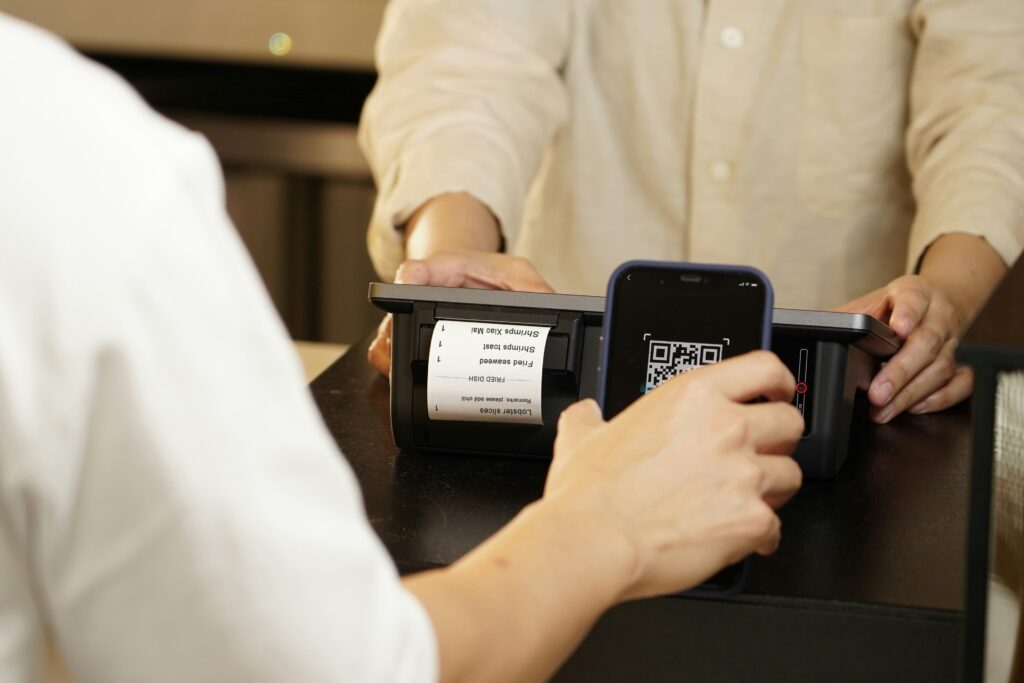The Value Added Tax (VAT) is one of the most ubiquitous contributions in the Mexican tax system, impacting the vast majority of commercial transactions. For any business, large or small, a thorough understanding of what VAT is is essential. VAT Business MX, how its transfer and accreditation mechanics work, and what the associated obligations are, is crucial not only for legal compliance, but also for proper financial management and pricing. Not knowing the details of the VAT Business MX It can lead to costly mistakes, penalties from the SAT (Tax Administration Service), and a direct impact on cash flow. This guide explores the essential aspects of this tax for businesses in Mexico.
Table of Contents
What is Value Added Tax (VAT) in Mexico?
The Value Added Tax (VAT) is an indirect tax levied on consumption. Unlike direct taxes such as income tax, which are levied on profits, VAT is levied on the value added to goods and services at each stage of the production and marketing chain, with the final consumer bearing the economic burden of the tax. Businesses act as tax collectors. VAT Business MX, transferring it to its clients and, in turn, informing the Tax Administration Service (SAT).
The main legal framework of this tax is the Value Added Tax Law (LIVA), complemented by the Federal Tax Code (CFF) and the Miscellaneous Tax Resolution (RMF) in force for the fiscal year (in this case, 2025). Understanding the Mexico VAT Law It is the first step for a correct management of the VAT Business MX.
Acts or Activities Taxed by the VAT Business MX
The LIVA clearly establishes what the acts or activities taxed with VAT when they are carried out within national territory. These are:
- Alienation of assets: The sale or transfer of ownership of movable and immovable property (the latter with particularities).
- Provision of independent services: Most professional, technical, consulting, maintenance, transportation of goods or people (with exceptions), hospitality, and other services.
- Granting of temporary use or enjoyment of property: The leasing of movable property (machinery, equipment) and real estate (commercial premises, offices), with the important exception of the leasing of real estate intended exclusively for residential purposes.
- Importation of goods or services: The introduction of goods into the country or the acquisition of services provided by non-residents of Mexico.
If your company carries out any of these activities, it is subject to the provisions of the VAT Business MX.
VAT Rates Applicable in Mexico (Fiscal Year 2025)
In Mexico, for the year 2025, the main VAT rates in Mexico are:
- General Rate of 16%: This is the rate applied to the vast majority of taxable acts or activities throughout the national territory, including Quintana Roo.
- 0% Rate: Applicable to certain specific products and services that the VAT Law considers essential or that it seeks to incentivize, such as the sale of unprocessed foods, patent medicines, books, newspapers, and magazines, as well as the export of goods and services. The advantage of the 0% rate is that it allows taxpayers to credit the VAT paid on their inputs and expenses, thus generating credit balances.
- VAT Exempt Acts: These are those that, by express provision of the VAT Law, do not incur VAT. Examples include medical services provided by authorized individuals or legal entities, most educational services, public land transportation of passengers (except railways), and the leasing of real estate for residential purposes. Those who perform exempt acts do not remit VAT and, as a general rule, cannot credit the VAT on their expenses and investments.
Correct identification of the applicable rate is crucial for calculating the VAT Business MX.
Mechanism of the VAT Business MX: Transferred VAT and Creditable VAT
He How VAT works in Mexico It is based on a transfer and accreditation system that seeks to tax only the value added at each stage.
VAT Transferred (or Collected)
This is the amount of VAT that a company charges its customers when selling a taxable product or providing a taxable service. The company is required to collect this tax and report it to the SAT (Tax Administration Service). It is calculated by applying the VAT rate corresponding to the value of the act or activity.
VAT Creditable (or Paid)
It is the amount of VAT that a company has paid to its suppliers for the acquisition of goods, services or for the temporary use or enjoyment of goods, provided that these are strictly indispensable for the performance of its taxed activities (or at rate 0%). In order for the VAT creditable and transferred can be subtracted, several requirements must be met: the expense must be deductible for income tax purposes, the VAT must be expressly broken down in a CFDI, and the tax must have been effectively paid in the month in question.
Determining the Balance Due or in Favor
On a monthly basis, companies must determine the difference between the VAT Transferred and the VAT Creditable:
- If the Transferred VAT is greater than the Creditable VAT, the difference is a balance due which must be paid to the SAT.
- If the Creditable VAT is greater than the Transferred VAT, a balance in favorThis balance can be requested as a refund, offset against other taxes (under certain rules), or credited against VAT balances from subsequent months.
This calculation is the heart of compliance with the VAT Business MX.
Obligations of Companies in Matters of VAT Business MX
The VAT tax obligations for companies They are diverse and important:
- Be registered in the Federal Taxpayers Registry (RFC).
- Maintain accounting in accordance with the CFF and its Regulations, recording separately the acts or activities for which the tax must be paid, those for which it is not due (exempt), and those taxed at rate 0%.
- Issue Digital Tax Receipts (CFDI) online for all transactions, specifically and separately detailing the transferred VAT.
- Collect CFDI from your suppliers with the VAT itemized to support the accreditation.
- Present the monthly VAT declaration SAT, no later than the 17th of the month following the month to which payment is due, reporting the value of the acts or activities, the tax transferred, the creditable tax and, where applicable, the balance due or in favor.
- Submit the Informative Declaration of Operations with Third Parties (DIOT) monthly, which reports operations carried out with suppliers.
Compliance with these obligations is essential to avoid problems with the VAT Business MX.
He VAT Business MX in Specific Sectors and Particular Operations
Digital Services
He VAT on digital services in Mexico There are specific rules, especially when loans are made from foreign residents without a permanent establishment in Mexico to recipients located in Mexico. Intermediary platforms may have obligations to withhold and pay VAT.
Foreign Trade
Imports of goods and services are subject to VAT, which is generally paid at customs. On the other hand, the export of goods and services (with certain exceptions and requirements) is taxed at the 0% rate, which allows exporters to recover the VAT paid on their inputs.
Tourism Sector in Quintana Roo
Most tourist services (lodging, tours, restaurants, etc.) in Quintana Roo are taxed at the general VAT rate of 16%. This is an important component of the final price for tourists and revenue for businesses in the sector.
Real Estate Sector
The sale of buildings attached to land intended for commercial or industrial purposes is taxable, while land is exempt. The leasing of commercial premises also incurs VAT.
VAT Credits: Refund, Compensation or Credit
When the creditable VAT for a month exceeds the transferred VAT, a credit balance is generated. Companies have the following options for managing these balances:
- Accreditation: Use the credit balance to reduce the amount of VAT payable in subsequent months, until it is exhausted.
- Compensation: Under certain rules and with prior notice to the SAT, VAT balances may be offset against other federal taxes (own or withheld from third parties), provided they are not for specific purposes.
- Return: Request a refund of the outstanding balance from the Tax Administration Service (SAT). This process requires review by the authority and can take time, but it is a viable option, especially for companies with recurring outstanding balances (e.g., exporters or those operating at the 0% rate).
Correct management of credit balances is an important part of the administration of the VAT Business MX.
Tax Consulting: Essential for Correct Tax Management VAT Business MX
The LIVA (Value of Goods) is a complex law, with multiple assumptions, exemptions, and requirements for crediting and refunds. Furthermore, the Miscellaneous Tax Resolution may introduce specific rules each year. Therefore, the VAT tax consultancy in Mexico It is essential. A corporate lawyer with tax experience or a specialized public accountant can:
- Help correctly classify the company's acts or activities to determine the applicable VAT rate.
- Ensure compliance with all requirements for VAT accreditation.
- Optimize the management of credit balances.
- Ensure the correct and timely filing of monthly VAT and DIOT returns.
- Assist in the attention of requirements, invitation letters or audits by the SAT related to the VAT Business MX.
- Provide compliance strategies for the VAT Business MX.
At City Laws, our team in Quintana Roo can offer you the tax advice that your business needs for proper management VAT Business MX.
He VAT Business MX It is a central part of the Mexican tax system, and its proper administration is vital to the financial health and legal compliance of any company. From the accurate calculation of transferred and creditable tax to the timely filing of returns and the efficient management of credit balances, every aspect of the system is VAT Business MX It requires attention and knowledge. In a tax environment as dynamic as Mexico's, constant updating and the support of professionals are your best tools.
If your company seeks to ensure impeccable management of the VAT Business MX and optimize your tax situation, Contact City LawsWe're ready to provide you with the expert advice your business deserves.

